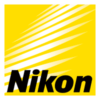BELMONT, Calif. and TOKYO, Japan–Aug. 26, 2002 – Nikon’s corporate objective is to provide the leading products to customers in the semiconductor industry through fair competition in the marketplace. Such fair competition is based on the premise that each competitor respects the intellectual property rights of the other. Because Nikon believes that ASML did not live up to this standard, Nikon filed patent infringement lawsuits against that company in December of 2001. The litigation is proceeding according to schedule. Nikon remains confident in the outcome of the litigation and expects that fair competition will be restored to the marketplace.
On December 21, 2001, Nikon filed a complaint against ASML in the U.S. International Trade Commission (ITC) asserting infringement of seven Nikon patents relating to microlithographic equipment. In the ITC complaint, Nikon is seeking an exclusion order from the ITC to prevent any further importation by ASML of infringing stepper and scanner machines. Based on the allegations of Nikon’s complaint, the ITC instituted an investigation into ASML’s alleged infringement on January 29, 2002. Discovery in the investigation was substantially completed at the end of July, and a trial is scheduled to begin before an Administrative Law Judge at the ITC on September 4. The Judge’s ruling on an exclusion order is scheduled for submission by January 29, 2003, and the Commission will then review the ruling by April 29, 2003. With respect to the ITC case, Nikon remains confident of a favorable outcome.
Also on December 21, 2001, Nikon filed a complaint in the U.S. District Court for the Northern District of California asserting infringement of four additional Nikon microlithography patents, to which another Nikon patent was added on March 22, 2002. In the California complaint, Nikon is seeking an injunction and money damages. In responding to Nikon’s complaint in California, ASML contended that two of the Nikon patents in the California case should be declared unenforceable because of alleged misconduct in obtaining the patents, and that Nikon violated U.S. antitrust laws in obtaining the patents. Nikon strongly believes that ASML’s counterarguments in this regard are baseless, and thus Nikon moved to dismiss those allegations at the beginning of the case. In July, the judge in the California case ruled that ASML’s counterarguments could not be dismissed at the early stages of the litigation. However, the ruling does not mean that the court supports ASML’s counterarguments. Under U.S. law, where facts could be in dispute, it is typical for judges to wait until the record is more developed before making a decision on the merits. Thus, the judge did not rule on the merits of either party’s positions on these issues, and Nikon remains confident that it will ultimately prevail on the merits of ASML’s patent misconduct and antitrust claims. Discovery in Nikon’s patent infringement suit in California is proceeding, and the trial of the case is expected to take place in early 2004. Nikon remains confident in a favorable outcome of this litigation.
As part of its response to Nikon’s ITC complaint in April 2002, ASML alleged that Nikon infringes on four ASML patents. In accordance with the ITC rules, ASML’s countersuit against Nikon was removed to the U.S. District Court in Arizona, where ASML’s U.S. subsidiary is located. Nikon has moved to transfer ASML’s case to the Northern District of California to be consolidated with Nikon’s earlier-filed patent infringement suit. The Arizona case is still in its very early stages. A hearing on Nikon’s motion for transfer is currently set for oral argument in December and no discovery will occur until the court rules on the motion. Nikon believes that, if the case progresses, it will ultimately prevail against ASML’s infringement allegations.
On August 19, 2002, ASML filed a patent infringement suit against Nikon in Japan asserting infringement of one ASML patent. The Japanese patent is a counterpart of one of the U.S. patents in the Arizona case. Nikon is confident that, if the case progresses, it will ultimately prevail against ASML’s infringement allegation in Japan. Nikon intends vigorously to protect its rights in Japan, and the suit by ASML in Japan will not deter Nikon from enforcing its U.S. patent rights through the ITC and the California cases.
###
U.S. Contacts:
Frank Masciocchi
Vice President Sales and Marketing
Nikon Precision Inc.
650 508 4618
frankm@nikon.com
Susan Bernardi
Nikon Precision Inc.
(650) 508-3819
sbernardi@nikon.com
